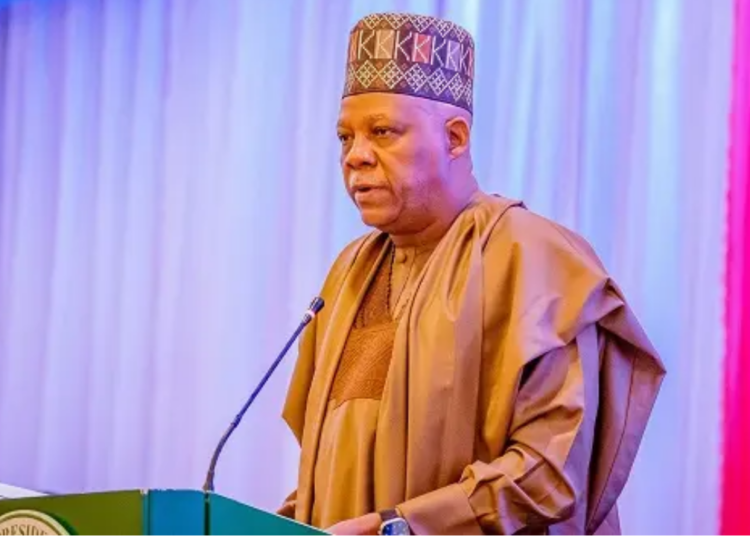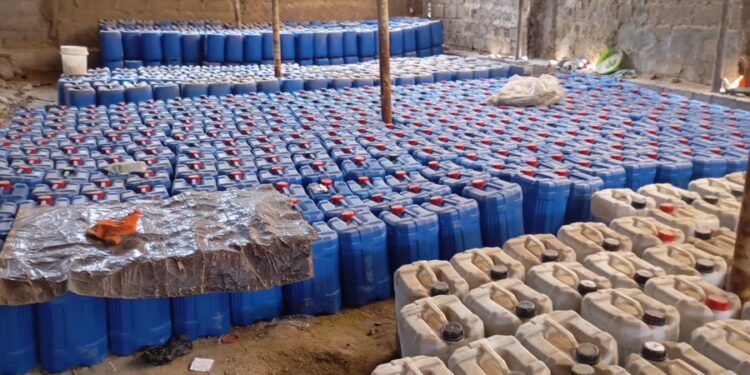The Federal Government has declared flooding a national security concern, unveiling a new Anticipatory Action Framework aimed at shifting disaster response in Nigeria from reactive measures to proactive and coordinated early interventions.
The framework, launched at the Presidential Villa in Abuja on Wednesday, includes scientific and indigenous data collection methods, predefined triggers for early action, and a consolidated budget to enhance the country’s readiness and resilience, particularly in flood-prone states and communities.
Science-Driven Response Key to Disaster Prevention – Shettima
Vice President Kashim Shettima, while receiving the draft framework and budget report from the Anticipatory Action Task Force (AATF), stressed the urgent need to embrace science-based planning for disaster preparedness.
“Disasters are indeed security issues. For too long, we’ve merely reacted instead of preparing ahead,” he said, according to a statement by his media aide, Stanley Nkwocha. “This new approach is our roadmap toward prevention, not just response.”
Shettima commended President Bola Tinubu for prioritizing disaster preparedness and praised the Office of the National Security Adviser (ONSA) for spearheading coordination efforts.
“We’ll rally all stakeholders and partners in the Nigerian project to support this initiative. Together, we can mobilize resources and confront these challenges effectively,” he added.
Shift from Response to Prevention – Minister
Also speaking, Minister of Humanitarian Affairs and Poverty Alleviation, Prof. Nentawe Goshwe Yilwatda, described the framework as a game-changer in Nigeria’s disaster management strategy.
“We are no longer focusing solely on response and recovery. We are now working to prevent avoidable losses,” he stated.
Highlighting the magnitude of previous disasters, he recalled that in 2004, floods displaced 1.2 million people and destroyed 1.3 million hectares of farmland, with economic losses surpassing $1 billion.
“If we had invested just one percent of that amount in prevention, the damage could have been significantly reduced,” he said.
NSA Urges Swift, Coordinated Action
National Security Adviser, Mallam Nuhu Ribadu, emphasized the importance of acting ahead of time.
“Natural disasters may be beyond our control, but our response is not,” Ribadu said. “Preparedness is the critical factor that determines how much we suffer when disasters strike.”
Framework Built on Evidence and Engagement
Providing further insights, the Special Assistant to the President on Humanitarian Affairs and Development Partners, Mrs. Inna Audu, outlined the structured process behind the framework.
She said the Anticipatory Action Task Force began work in March, completing data collection using both scientific tools and local knowledge to ensure evidence-based planning.
To support awareness and action at the grassroots level, she revealed that a Strategic Communication Working Group has been set up under the NSA’s office, located in the National Counter Terrorism Centre (NCTC) and led by Major General Adamu Garba Laka.
“This group will deliver layered communication and advocacy based on early warning triggers, ensuring that communities, states, and LGAs are adequately informed and ready to respond,” she explained.
The government says the new framework marks a significant leap toward safeguarding lives, property, and the economy from the recurrent devastation of floods in Nigeria.





